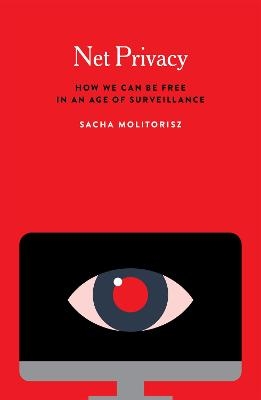
Net Privacy
How We Can Be Free in an Age of Surveillance
Seiten
2020
McGill-Queen's University Press (Verlag)
978-0-2280-0155-3 (ISBN)
McGill-Queen's University Press (Verlag)
978-0-2280-0155-3 (ISBN)
The internet is unprecedented and ubiquitous. Everyone can watch everyone and be watched back, now or later, again and again. What does this mean for privacy?
In our digital world, we are confused by privacy – what is public, what is private? We are also challenged by it, the conditions of privacy so uncertain we become unsure about our rights to it. We may choose to share personal information, but often do so on the assumption that it won't be re-shared, sold, or passed on to other parties without our knowing. In the eighteenth century, philosopher Jeremy Bentham wrote about a new model for a prison called a Panopticon, where inmates surrounded the jailers, always under watch. Have we built ourselves a digital Panopticon? Are we the guards or the prisoners, captive or free? Can we be both? When Kim Kardashian makes the minutiae of her life available online, which is she? With great rigour, this important book draws on a Kantian philosophy of ethics and legal frameworks to examine where we are and to suggest steps – conceptual and practical – to ensure the future is not dystopian. Privacy is one of the defining issues of our time; this lively book explains why this is so, and the ways in which we might protect it.
In our digital world, we are confused by privacy – what is public, what is private? We are also challenged by it, the conditions of privacy so uncertain we become unsure about our rights to it. We may choose to share personal information, but often do so on the assumption that it won't be re-shared, sold, or passed on to other parties without our knowing. In the eighteenth century, philosopher Jeremy Bentham wrote about a new model for a prison called a Panopticon, where inmates surrounded the jailers, always under watch. Have we built ourselves a digital Panopticon? Are we the guards or the prisoners, captive or free? Can we be both? When Kim Kardashian makes the minutiae of her life available online, which is she? With great rigour, this important book draws on a Kantian philosophy of ethics and legal frameworks to examine where we are and to suggest steps – conceptual and practical – to ensure the future is not dystopian. Privacy is one of the defining issues of our time; this lively book explains why this is so, and the ways in which we might protect it.
Sacha Molitorisz is a former journalist with the Sydney Morning Herald and is now an academic in media, law, and philosophy at the University of Technology, Sydney.
| Erscheinungsdatum | 02.01.2020 |
|---|---|
| Verlagsort | Montreal |
| Sprache | englisch |
| Maße | 152 x 229 mm |
| Gewicht | 454 g |
| Themenwelt | Geisteswissenschaften ► Philosophie ► Allgemeines / Lexika |
| Geisteswissenschaften ► Philosophie ► Ethik | |
| Sozialwissenschaften ► Kommunikation / Medien ► Medienwissenschaft | |
| Sozialwissenschaften ► Politik / Verwaltung | |
| ISBN-10 | 0-2280-0155-2 / 0228001552 |
| ISBN-13 | 978-0-2280-0155-3 / 9780228001553 |
| Zustand | Neuware |
| Haben Sie eine Frage zum Produkt? |
Mehr entdecken
aus dem Bereich
aus dem Bereich
die letzten Jahre der Philosophie und der Beginn einer neuen …
Buch | Hardcover (2024)
Klett-Cotta (Verlag)
CHF 39,20
Gesundheitsschutz, Selbstbestimmungsrechte, Rechtspolitik
Buch | Softcover (2024)
Kohlhammer (Verlag)
CHF 54,60
Jenseits von Identität | Ausgezeichnet mit dem Leipziger Buchpreis …
Buch | Softcover (2023)
Ullstein Taschenbuch Verlag
CHF 19,55


